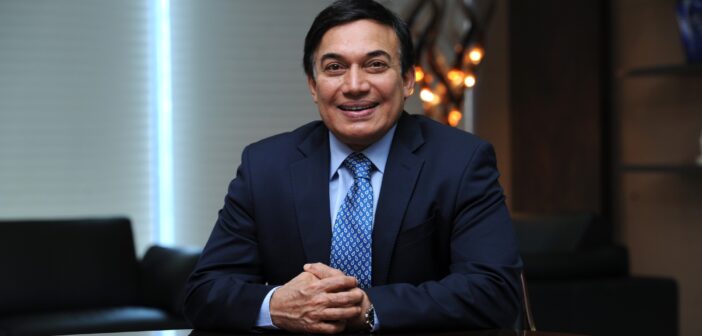Corporate governance & professionalism seem to be the emerging mantra of survival for Indian real estate. But the man who visualised the need for this decades back, maintains a low profile to not take any credit as the first-mover of institutionalising Indian real estate. As the industry body CREDAI decorates Ravi Puravankara for the lifetime achievement, Ravi Sinha interviews him to understand what goaded this first-mover to adopt corporate governance.
Ravi Sinha: How far the sector has evolved over the years?
Ravi Puravankara: In my opinion the Indian real estate sector has crossed over the stage of evolution and consolidation. As I see it, now we are into the stage of maturity. Today, one can easily differentiate between the professionally-run real estate enterprise and a family-driven venture. Also, the performance of different brands have gone through so much of scrutiny over the years that the buyers, financial institutions and all the stakeholders are conscious of the difference in dealing with the established brands. What it actually translates into is that the professional real estate brands have easy access to funds, cost of funds are low and client acquisition cost along with product tenure in the market is low.
Ravi Sinha: The large universe of the real estate companies are still the family-run businesses. Is the nature of business not conducive to professional boardroom?
Ravi Puravankara: I firmly believe that organisations are built by their people. Working with people who share your beliefs, value systems, and drive is important. A company should be run professionally and led by the best and most able talent. Real estate entrepreneurs must strive to build an institution that withstands the test of time. For this, it is important to separate management from ownership. Tomorrow, if one from the family decides not to contribute in the family legacy, they can step back because the system is built for longevity.
The role of the real estate entrepreneurs should be to build a sound professional culture over the years and invest in systems and processes to ensure the enterprise functions as a professionally run organisation. If the foundations are strong then only the Gen Next would also share the vision and take the initiative to contribute towards building a long-lasting institution with authenticity.
Ravi Sinha: No cash deal in a business like real estate sounds challenging even today. How could you weather this challenge in the initial years?
Ravi Puravankara: Our conduct has been crucial for us since the inception. No transaction occurs with unaccounted money and it is one of our core values and strengths. Ethical practices and transparency are the foundation on which our brand is built. All our practices are aligned with legal and regulatory compliances in both letter and spirit, and the entire ecosystem is based on shared responsibility and accountability.
Refusing to deal with unaccounted money has been an impediment to growth at times. We lost out on sales, land deals, and joint ventures. But at the same time, it also proved to be a source of strength. These values are why the brand has today managed to generate interest among investors like the International Finance Corporation (IFC) – part of the World Bank, among others.
Ravi Sinha: While many of the developers across the world have diversified into various segments of real estate, like office, retail or hospitality, why has Puravankara been focussed on the housing alone?
Ravi Puravankara: Engineering has intrigued me from a young age. The ability to take a piece of land, create a living space where people spend their lives, and eventually leave that value to the next generation, was compelling. A home is a basic need for everyone; it is a primary responsibility to provide security and safety for your family. For me, it is no different. I have been so passionate about housing that I could foresee the housing segment itself as a business that caters to various segments of the masses. As a result, Puravankara is arguably the only real estate brand where various housing sub-brands or verticals operate as different segments. Right from Purva to Provident Housing and WorldHome Collection to Purva Land, he could set up a bouquet of housing for every budget segment.
Ravi Sinha: With majority of the real estate stocks showing inconsistent price pattern, compared to their respective PE & EPS, do you think getting listed on the bourses is more of a liability than asset?
Ravi Puravankara: Getting listed is not all about raising the capital. Developers with good track record of delivery and fair amount of transparency can anyway raise the capital at a reasonable rate. But the developers still go for an IPO as it helps increase awareness about the products and values, which has tremendously improved brand equity. It has also provided the listed players with an avenue for fundraising. Today, by virtue of being a listed company with strong corporate governance, the top developers are recognised as trusted real estate brands.
At a time when others dismissed that the nature of the business is not conducive for getting listed, many of us in the business opted for an IPO as early as in in 2007. This has led to further transparency & corporate governance, and having a good governance structure in place has been a core advantage for the brand since then.
Track2Realty is an independent media group managed by a consortium of journalists. Starting as the first e-newspaper in the Indian real estate sector in 2011, the group has today evolved as a think-tank on the sector with specialized research reports and rating & ranking. We are editorially independent and free from commercial bias and/or influenced by investors or shareholders. Our editorial team has no clash of interest in practicing high quality journalism that is free, frank & fearless.
Subscribe our YouTube Channel @ https://bit.ly/2tDugGl





